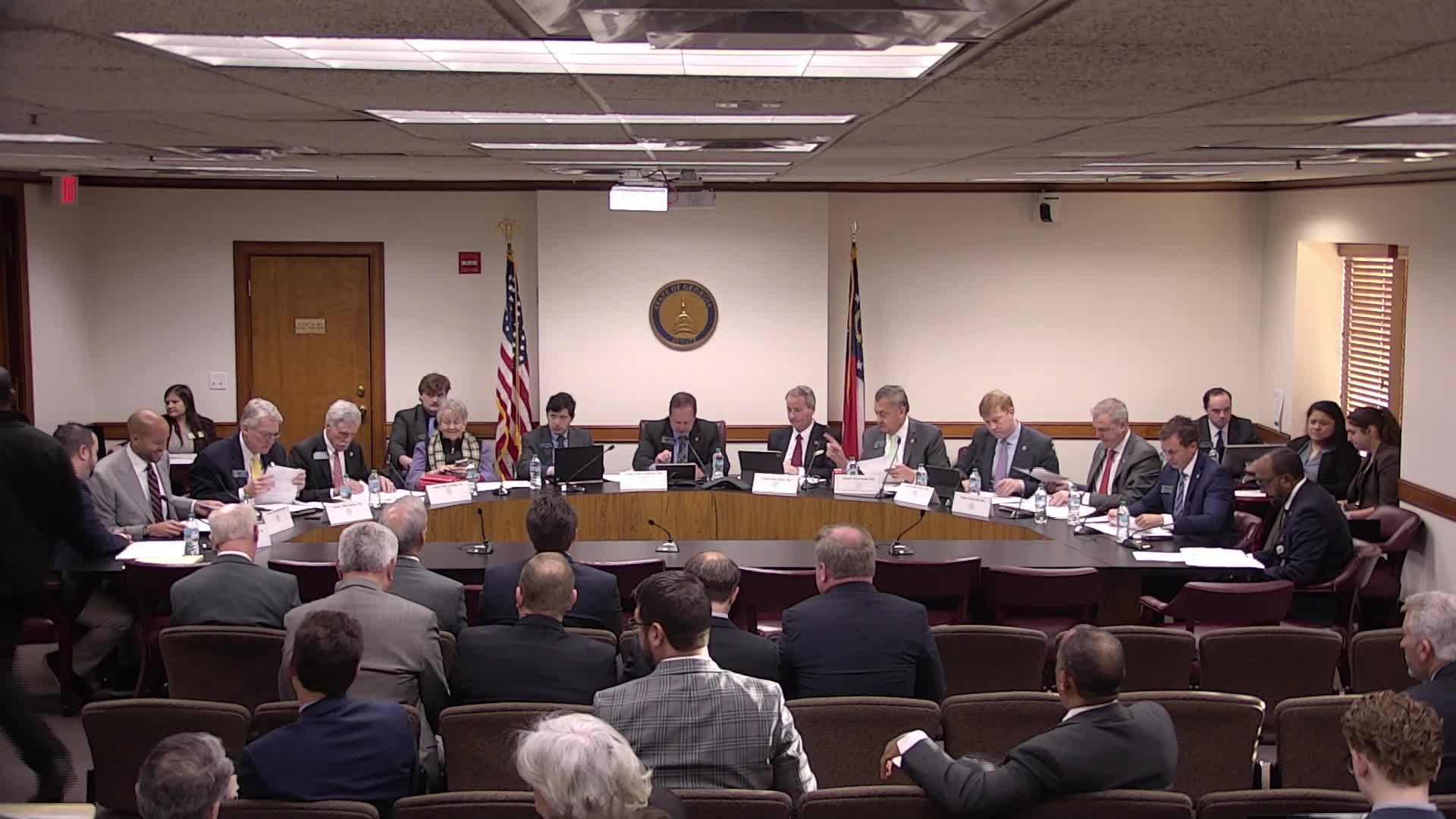Committee approves alternative ‘host’ sales-tax plan limited to Cherokee, Cobb and Gwinnett counties
Get AI-powered insights, summaries, and transcripts
Subscribe
Summary
The Senate Finance Committee approved a substitute to House Bill 66 that creates an alternative host sales/use tax mechanism limited to counties without a LOST (Cherokee, Cobb, Gwinnett), allocates up to 25% of revenues for capital, ties homestead exemptions to a ballot measure, and includes a 10-year sunset.
The Senate Finance Committee advanced a substitute to House Bill 66 that would let counties without an existing local option sales tax (LOST) pursue an alternative “host” local sales-and-use tax under a framework the committee discussed at length.
Under the substitute described in committee, the capital-factor portion of the tax is capped at 25% (0.25), the ballot question to implement the change must include both an alternative homestead exemption and the sales-and-use tax, and any capital distributions to municipalities would be allocated in the same proportions used under SPLOST. Committee members said the measure as drafted would be available only to counties that do not currently collect LOSS/LOST revenues, and senators repeatedly cited Cherokee, Cobb and Gwinnett counties as the jurisdictions most likely to use the approach.
Committee members and local officials discussed several features: a 10-year sunset on the alternative host tax that would require voter approval to renew, the mechanics if negotiations over local redistribution break down (including a potential temporary loss of a penny sales tax), and timing lags that could create a year or more without an existing penny sales tax if a county transitions. Dante (identified in the meeting as an ACCG representative) and other local representatives said local acts and voter referenda would be required for counties to implement the plan.
Senator Albers and others framed the measure as a way to reduce county property tax burdens for homeowners, while preserving revenue for capital transportation projects. Senator Del Lazo described the 75/25 versus 80/20 capital split rationale: the 75% share for local relief would allow a county to eliminate certain property tax levies while preserving capital funding from the remaining 25% allocation.
Committee members debated pump-price thresholds and how motor fuel sales tax treatment interacts with the proposal; one senator noted the local tax on motor fuels has historically been suspended when retail fuel exceeds $3 per gallon. The committee also restored earlier language as a friendly amendment and then voted the bill out of committee; members recorded the final passage as unanimous.
Next steps: the committee’s version will be sent forward with the restored language; local delegations and voters in any county that moves to adopt the mechanism would have additional steps, including local legislation and a voter referendum.
